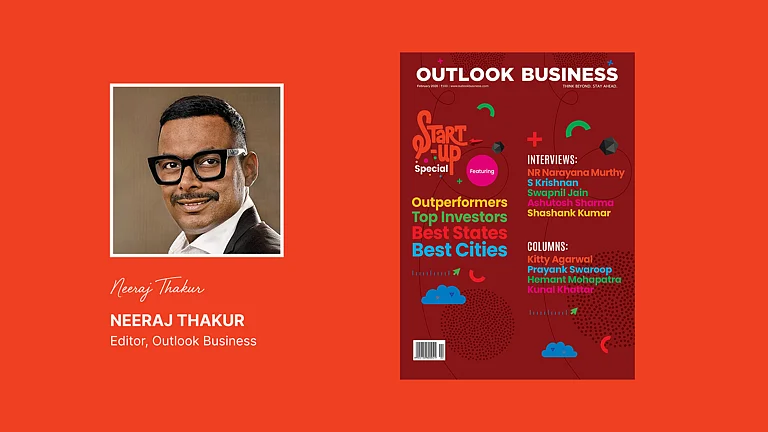Alliance of Digital India Foundation (ADIF), an Indian start-up lobby group, has filed a complaint against tech giant Google with the Competition Commission of India (CCI), as per media reports. The group has mentioned that Google is allegedly practising anti-competitive practises in online advertising.
As per the complaint filed by ADIF, Google has been accused of abusive behavior in both online search and online display advertising.
Additionally, ADIF stated that the dominance of Google over major online platforms and its reliance on advertising for most of its revenue stifle competition. This, in turn, adversely affects Indian businesses.
This is not the first time ADIF has complained about Google’s dominance. This is also not the first time that start-ups have raised concerns against Google’s position. In 2023, Murugavel Janakiraman, founder & CEO of the Chennai-based Matrimony.com, reportedly said, “Basically, Google is abusing its monopoly, forcing companies to use its payment system.” Here, Janakiraman was referring to the billing payment system of Google, which led to a lot of criticism from Indian start-ups.
Let’s first delve into the complaint filed by ADIF against the tech giant.
Why Did the Start-Up Lobby Complain Against Google?
Google controls the majority of online platforms; further, 97 per cent of its revenue comes from advertisements, as per ADIF. This leads to practises that suppress competition, adds ADIF.
The group has also alleged that the tech giant has been imposing unfair conditions on advertisers through its AD policies in online search advertising. This, in turn, leads to restrictions on call assets and prohibitions on third-party technical support.
In its complaint, it said, “Google allows competitors to bid on trademarked keywords, leading to a bidding war that ultimately benefits Google at the expense of advertisers and trademark owners.”
To promote their advertisements, advertisers can bid the amount of money they wish to spend on a certain advertisement through Google's ad-ranking system. The tech giant has mentioned on its website that Google Ads utilises auction-time bids to decide which ads to display. By setting bids that align with one’s business needs, one can reach more potential customers, it adds.
Additionally, the complaint highlights that Google prefers its own services. By mandating advertisers to use its Display and Video 360 platform to access YouTube ad space, advertisers' options are restricted. The industry group contends that this forces advertisers to rely solely on Google.
Removal of Third Party Cookies Hampers Advertisers, says ADIF
Another point of concern for the start-up group has been the push by Google to not promote third-party cookies. Just to give some context, cookies are files that are created by websites to improve one’s online experience by remembering details of the visit, as per Google. Cookies that are tracked by websites other than the one you are currently on are known as third-party cookies.
While third-party cookies were an important part with regards to digital advertising, they are being phased out by the tech giant. In its website, the company extensively talks about how users can “choose to delete existing cookies, allow or block all cookies, and set preferences for certain websites.”
ADIF has mentioned in its complaint that removal of access to third-party cookies could greatly hinder the ability of non-Google Demand Side Platforms to serve advertisers efficiently. Google, on the other hand, has mentioned that it is trying to phase out third-party cookies to protect the privacy of users and not allow usage of data by those sites without the consent of the user.
Rift Between Start-Ups and Google’s Billing System
This is not the first time that ADIF raised a voice against Google. Several start-ups criticised the user choice billing system of Google and vowed to fight against the same.
After not adhering to the billing policy of the tech giant, several start-ups were also delisted from the Google Play Store in March this year. These apps, which include Kuku FM, InfoEdge and 99acres, were eventually restored on the Play Store without the in-app payment option.
The user-choice billing system introduced by the tech giant in 2022 allows app makers to offer different payment options to users that include net banking, credit cards and others. However, the tech giant charges a commission of 11–26 per cent on these transactions. The new billing system was introduced after the CCI asked Google to allow developers to use third-party billing systems.
People Group’s founder and CEO, Anupam Mittal, referred to the tech giant as the ‘Digital East India Company’. Taking to X, Mittal mentioned that this is “Neo-colonialism at its worst!”
Several start-ups have called it the lagaan tax. Lagaan was a harsh tax that was levied by the East India Company on farmers. Another reference is the 2001 Hindi film Lagaan, starring actor Amir Khan, in which a British officer challenged Indians to a cricket match as a wager against having to pay high taxes.
After the ongoing rift, the government vowed to find a permanent solution to the issue. Taking to X (formerly Twitter), Rajeev Chandrasekhar, former Minister of Electronics and Information Technology, said that start-ups have presented their concerns regarding the policies of Google. He assured that the government would take up the issue with Google and find a permanent solution about the same.
Google, meanwhile, reportedly argues that its fees support the development and promotion of android and Play Store app ecosystems.
Is Digital Competition Bill the Way Out?
The goal of the Digital Competition Bill, 2024, which is still in draft form, is to stop anti-competitive behavior and stop major internet companies like Facebook and Google from controlling the nation's digital market.
Additionally, a heavy penalty will be imposed in case there is a violation of the same. The bill reportedly took inspiration from the Digital Market Act (DMA) of the European Union that was passed in 2022. The draft bill also has guidelines for the CCI to determine if a particular company is dominant in the digital market. Some of the criteria for the same are to evaluate the financials of the company, assess the reach of the company in the Indian market and determine the total number of users it has.
While it remains to be seen how things will shape up for Google in India, the tech giant has received criticisms abroad as well. On August 6, a US judge ruled that Google had acted illegally to maintain its monopoly on online search and advertising, as per the BBC. In 2020, the US Department of Justice sued Google due to the company's control over approximately 90 percent of the online search market. Google is now planning to appeal against the ruling. To prevent big tech companies from monopolising digital markets, the EU is also planning to investigate tech giants such as Meta, Facebook and Google.
































